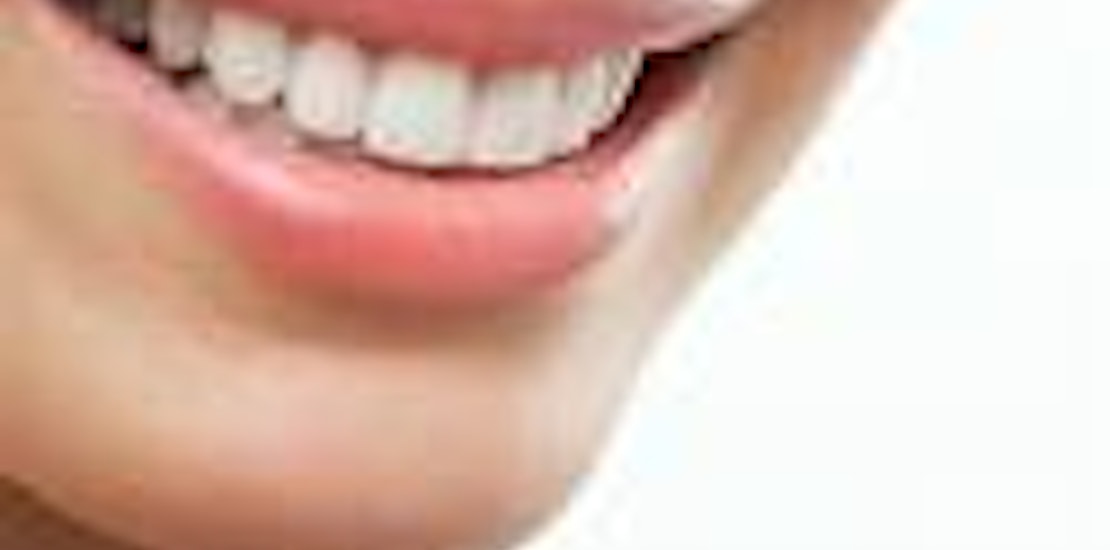The Whole Tooth: What Dentists Can Tell You About Your Health
I’m always fascinated by police-procedural shows, especially when they find a decomposing body and manage to reconstruct a victim’s entire life and death based on her teeth and dental records. “Judging by these abrasions,” the medical examiner says, “I can tell that she was left-handed, chewed on her pen caps, and enjoyed the opera.” Case closed.
If someone were to analyze my own teeth, I wonder what he’d determine ?he’d probably figure out that I have a predilection for candy, don’t chew gum, and wore braces as a child. But I assume my teeth would probably show that I am an otherwise extremely healthy individual. Your dentist can look at your teeth and tell a lot more about your health than whether or not you floss. We already know how pivotal flossing and gum care are, but the teeth themselves are important, too. Many health problems manifest themselves in our teeth?and what’s going on in someone’s mouth can reveal much about what’s going on in the rest of her body.
Loose Lips Become Broken Hips
Loosening teeth can indicate the onset of osteoporosis. When the jaw’s bone density decreases, the teeth themselves can lose their anchor and fall out. If a dentist notices a patient (usually elderly and female) with loose teeth, detached gums, or dentures that begin to fit poorly, he’ll often recommend that she be screened for the disease. Drugs to retain bone density can help, but women with osteoporosis should also be vigilant about brushing and flossing, since gum disease can speed up and compound the process of tooth loss.
Tooth loss is strongly associated with chronic kidney disease as well. In a study published in the September 2008 Journal of Periodontology, adult participants who had lost all their teeth were found to be more likely to suffer from renal disease. Although the data is too new to show exactly how the two afflictions are related, doctors theorize that the link seems to be the chronic inflammation that characterizes both conditions. It’s well known that patients with uncontrolled diabetes have much higher instances of gum disease, oral infections, cavities, and other dental problems, and because diabetes lowers the immune system’s response to infection, extra bacteria in the mouth have a better chance of seeping into the bloodstream and infecting the rest of the body.
Dry as a Bone
Our saliva neutralizes acid, kills bacteria, and washes away food particles. A lack of saliva can leave teeth prone to decay and the mouth more susceptible to infection. Chronic dry-mouth might seem like more of a bother than a worry, but it could indicate a more serious underlying condition called Sjögren’s syndrome, an autoimmune disorder that causes white blood cells to attack the salivary glands. If a dentist notices that a patient has an atypically dry mouth or has unusual decay or wear patterns on the teeth’s chewing surfaces, that person could have Sjögren’s, which affects about four million people in the United States, most of them women.
No Secrets
If you have certain bad or unhealthy habits, you can’t keep them from your dentist. Not only is it easy for him to spot a candy addict or a neglectful flosser, but he can also tell if you’re a smoker, if you drink excessive amounts of coffee, and if you fancy more than the occasional glass of red wine. All these habits leave telltale stains on your teeth. Drug use is also hard to keep from your dentist. Alcohol and cocaine are common causes of tooth decay, and crystal methamphetamine is especially acidic, rotting teeth in as little as a year of abuse.
Dentists are sometimes the first healthcare providers to notice a common sign of bulimia nervosa?enamel erosion and tooth decay. Constant vomiting enables stomach acid to wear away the protective enamel on teeth, causing the teeth to rot. Usually it’s the insides of the upper teeth that are affected most severely, even when the outsides continue to look smooth and glassy.
As the saying goes, correlation does not always equal causation. Not every dental problem is a sign of an underlying malady, and some symptoms have more than one cause. Wear and tear on teeth is a normal part of the aging process that happens to even healthy teeth, and many complications that develop out of neglect, like gum disease or decay, can be halted and even reversed with treatment.
Some doctors also believe that the dental symptoms that correlate with health conditions are actually just harbingers of poor self-care in general. It’s possible that a person who doesn’t take the time to get regular dental cleanings or floss thoroughly also doesn’t take the time to eat a balanced diet or get enough exercise. It could be that when dentists see teeth in states of decay, it simply signifies that the patient is neglecting his or her health in general.
Maintaining a healthy lifestyle is the key to maintaining a happy and healthy mouth, and regular dental cleanings and checkups are a big part of that lifestyle. Don’t be afraid of the dentist, because even though teeth will rat you out for your unhealthy habits, the secrets they reveal could also save your life.
Do you take equal good care of your teeth and your general health?
*Originally written by Allison Ford for DivineCaroline.com











_10242023164832.jpg?max-w=432&max-h=220&fit=crop&auto=format)

_08172023152001.jpg?max-w=432&max-h=220&fit=crop&auto=format)



 (3)_04112023125932.jpg?max-w=432&max-h=220&fit=crop&auto=format)


_01252024061712.jpg?max-w=432&max-h=220&fit=crop&auto=format)


 (6)_07082023175312.jpg?max-w=432&max-h=220&fit=crop&auto=format)
 (1)_05192023144508.jpg?max-w=432&max-h=220&fit=crop&auto=format)
 (37)_05032023114523.jpg?max-w=432&max-h=220&fit=crop&auto=format)
 (36)_04272023152113.jpg?max-w=432&max-h=220&fit=crop&auto=format)